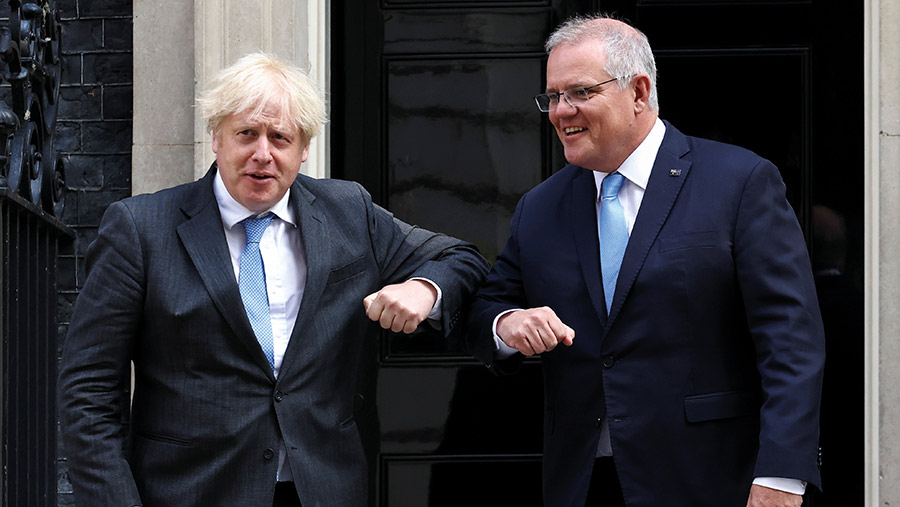Opinion: Free-trade deals will reduce British farmers and food
 © Henry Nicholls/Reuters/Adobe Stock
© Henry Nicholls/Reuters/Adobe Stock A new job is being advertised: Wanted – someone to help identify the benefits of Brexit as director of the Brexit Opportunities Unit (salary: £93,000-£120,000).
This would be a great opportunity for someone with a very powerful magnifying glass and a huge imagination.
High up on the list of benefits (for some) must be the freedom that Brexit has given the government to fundamentally change UK farming for good or ill. While details are still limited, the direction of travel is becoming clearer, and it is alarming.
See also: Farmer numbers expected to plummet as BPS is taken away
I can’t help wondering, if the current plans had been made with the primary purpose of terminally damaging the prospects for our industry, would they have been much different?
Consider the new UK-Australia free-trade deal.
The entire benefit of this seems to comprise one weekend of elbow-bumping, flag-waving photo opportunities to announce that a deal (any deal) had been done, offering a projected boost to our national prosperity by increasing gross domestic product by 0.02% over the next 15 years.
UK government [trade] policy will result in less food production, fewer farms and fewer farmers in this country.
In exchange for this rather underwhelming package, our leaders have been prepared to open up the UK market to food without tariffs or quotas and, apparently, without any requirements to match the animal health or environmental standards applied here.
Trade secretary Liz Truss was quoted in a recen interview in The Times as explaining: “What we aren’t going to be in is the business of EU-style regulatory imperialism, basically telling other countries how to run their farms”.
Does Ms Truss really regard applying the same regulations and standards to imports as are applied to home production as imperialistic oppression?
I would have thought it was just a matter of fairness and necessary to ensure a level playing field with our competitors.
Presumably, it would have been possible to build in some requirements on say, environmental standards, if our leaders had been prepared to put in the time and effort to do so.
But, apparently, this is not a priority for the people in charge.
This deal sets a precedent for the others the government is seeking.
Even if this particular Australian deal doesn’t end up causing us significant damage, the working assumption has to be that subsequent deals will surely do so, without a major rethink on trade policy.
To me, the signals are clear. UK government policy will result in less food production, fewer farms and fewer farmers in this country.
These things were not inevitable, but are the result of choices our political leaders have made.
I will remember that the next time they ask for my vote, or in the unlikely event that they want to call in for a promotional visit. That will be a “no” unless the photo opportunity involves slurry or muck.
As for our own business, we still don’t have enough information to work out whether we will be able to adapt and continue in farming (our first preference) or not.
The “lump-sum retirement” option does not seem especially attractive, although there appears to be an expectation that some landowners might supplement the amounts on offer by buying their tenants out.
This would then free up the land for something more lucrative – like tree planting.

